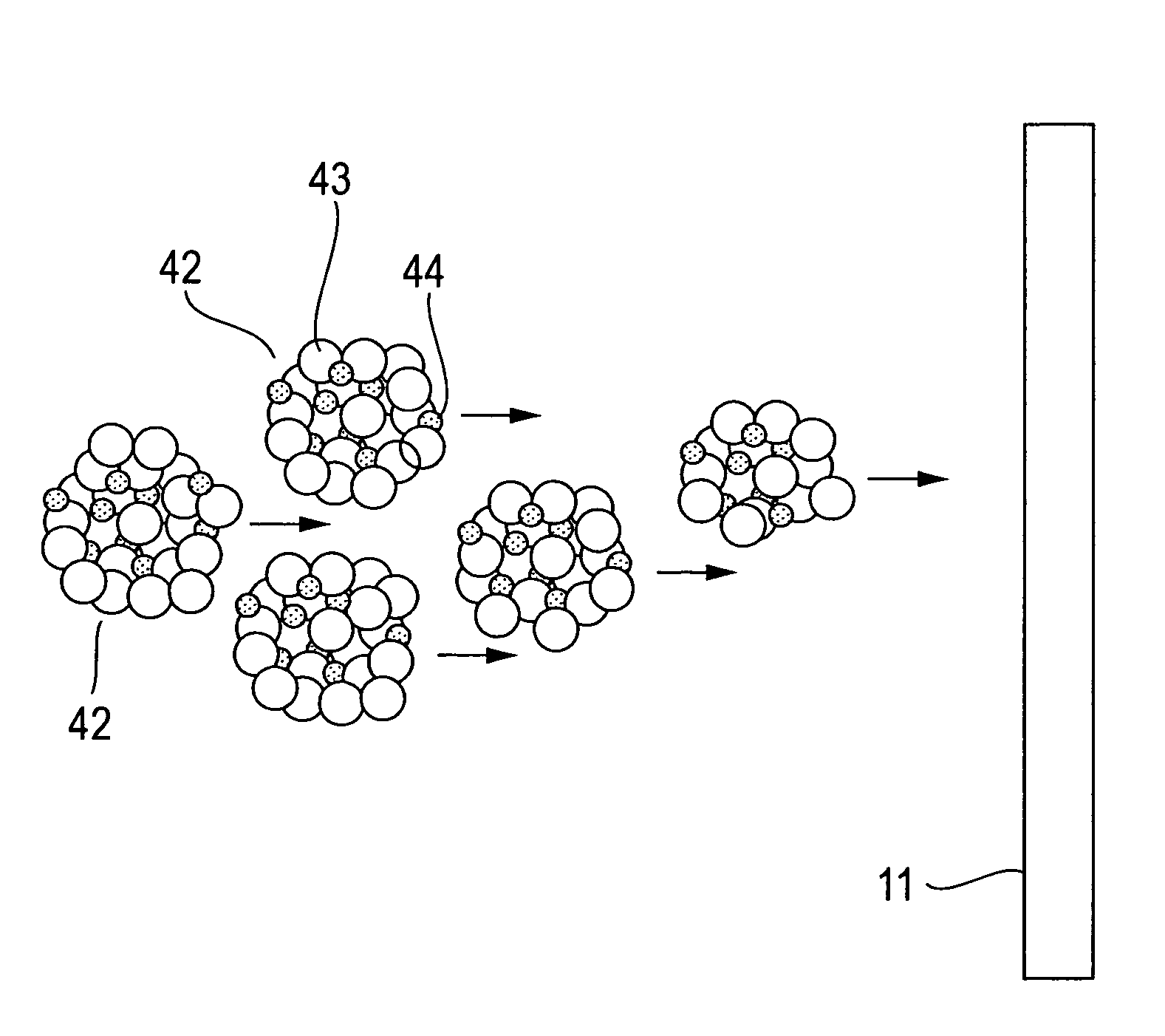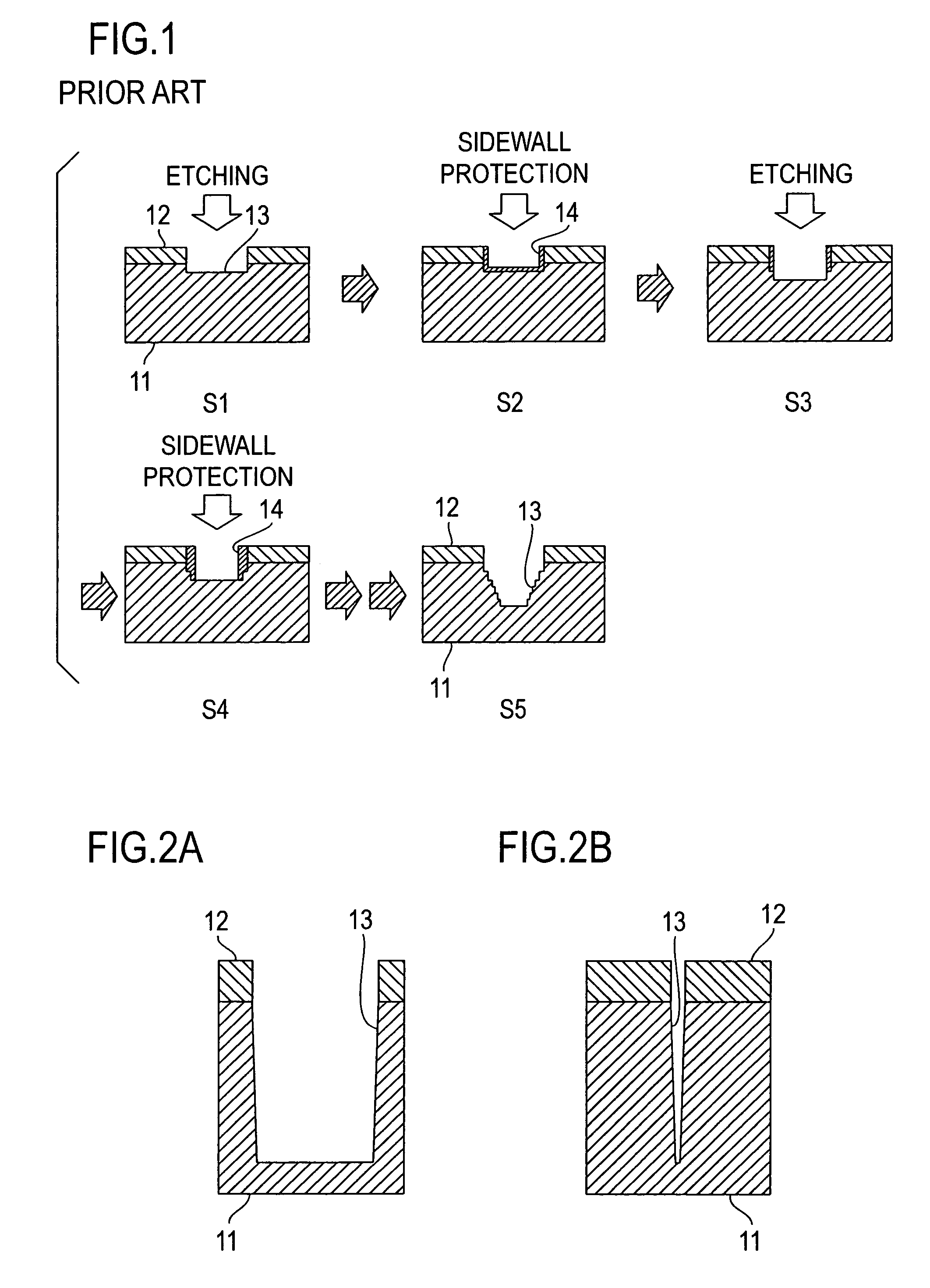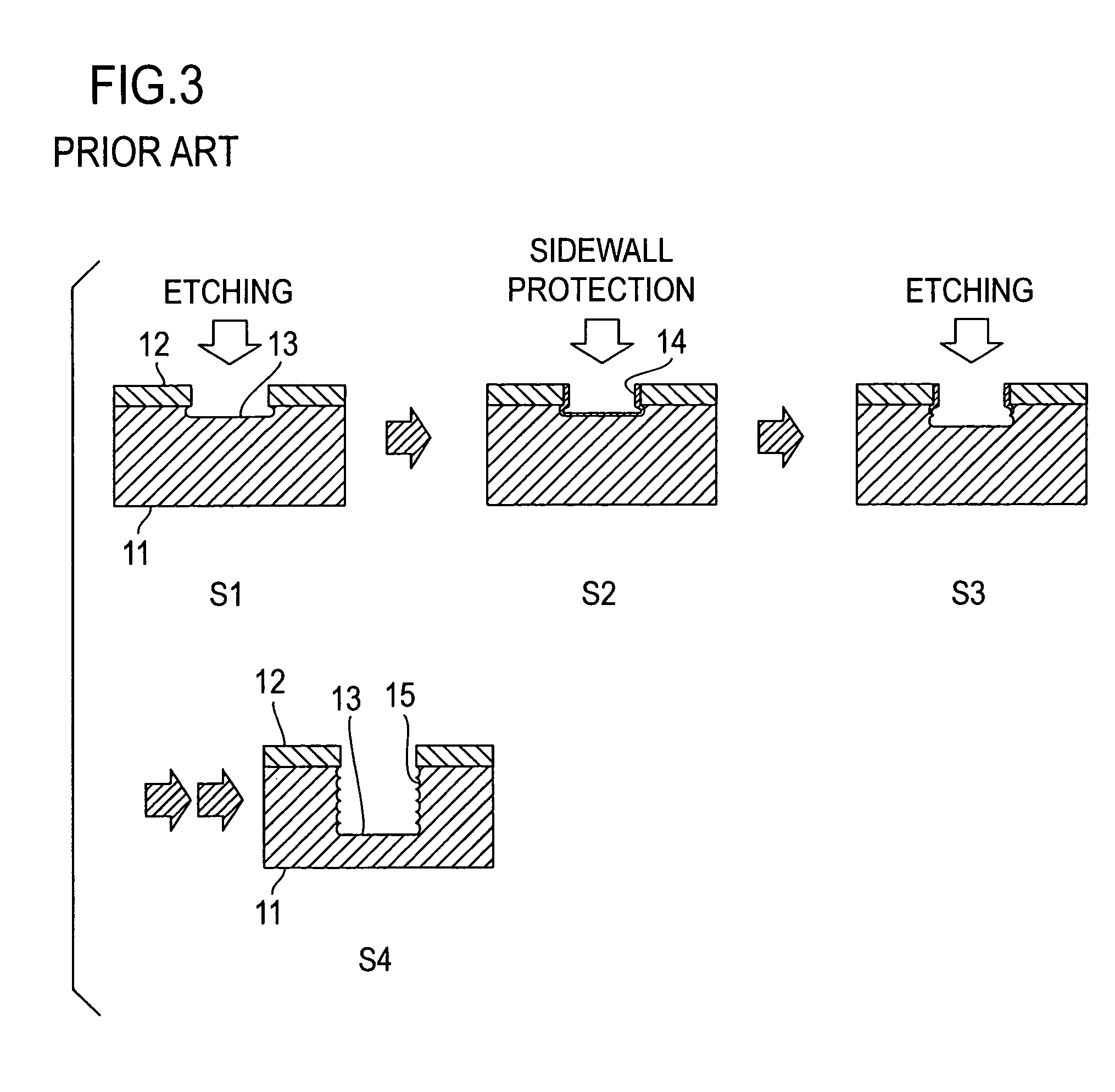Dry etching method and photonic crystal device fabricated by use of the same
a technology of photonic crystal and etching method, which is applied in the field of dry etching method, can solve the problems of increasing the surface roughness of the sidewall, the inability of plasma etching and the “sidewall protection” scheme to manufacture devices which require the inability to study an etching method for microfabrication of devices with a large aspect ratio, high precision and low roughness, etc., to achieve the effect of surface rough
- Summary
- Abstract
- Description
- Claims
- Application Information
AI Technical Summary
Benefits of technology
Problems solved by technology
Method used
Image
Examples
embodiment 1
[0051]This embodiment used the cluster ion beam etching device shown in FIG. 4, and used argon (Ar) as an etching gas and a CHF3 gas as a component that reacts with an object surface to deposit and form a thin film. The Ar gas and the CHF3 gas were mixed in a flow rate (mole ratio) of 9:1, then the mixed gas was introduced into the cluster forming chamber 21, from which it was injected via the nozzle 22 to obtain mixed clusters 42. The material of the substrate 11 subject to etching was silicon (Si). The silicon substrate 11 was irradiated with the mixed cluster ion under the condition of a 30 kV acceleration voltage. On the silicon substrate 11 there was preformed a line-and-space pattern by a nickel (Ni) mask. The silicon substrate 11 was irradiated with the cluster ion beam 41 until the depth of etching reached 10 μm.
[0052]For the evaluation of the etching profile, the verticality of the sidewall was evaluated using a scanning electron microscope (SEM) and the sidewall roughness ...
embodiment 2
[0053]This embodiment was implemented under basically the same conditions as in Embodiment 1 except changing the acceleration voltage for the mixed cluster ion beam. The acceleration voltage was varied from 0.5 kV to 200 kV. The surface roughness of the sidewall 15 was evaluated using AFM. The results of evaluation are shown in FIG. 8.
embodiment 3
[0054]This embodiment was implemented under basically the same conditions as in Embodiment 1 except changing the flow rate between the Ar gas and th CHF3 gas. The flow rate, Ar / CHF3, was varied from 0.1 to 100. The surface roughness of the sidewall 15 was evaluated using AFM. The results of evaluation are shown in FIG. 9.
PUM
| Property | Measurement | Unit |
|---|---|---|
| acceleration voltage | aaaaa | aaaaa |
| surface roughness | aaaaa | aaaaa |
| surface roughness Ra | aaaaa | aaaaa |
Abstract
Description
Claims
Application Information
 Login to View More
Login to View More - R&D
- Intellectual Property
- Life Sciences
- Materials
- Tech Scout
- Unparalleled Data Quality
- Higher Quality Content
- 60% Fewer Hallucinations
Browse by: Latest US Patents, China's latest patents, Technical Efficacy Thesaurus, Application Domain, Technology Topic, Popular Technical Reports.
© 2025 PatSnap. All rights reserved.Legal|Privacy policy|Modern Slavery Act Transparency Statement|Sitemap|About US| Contact US: help@patsnap.com



